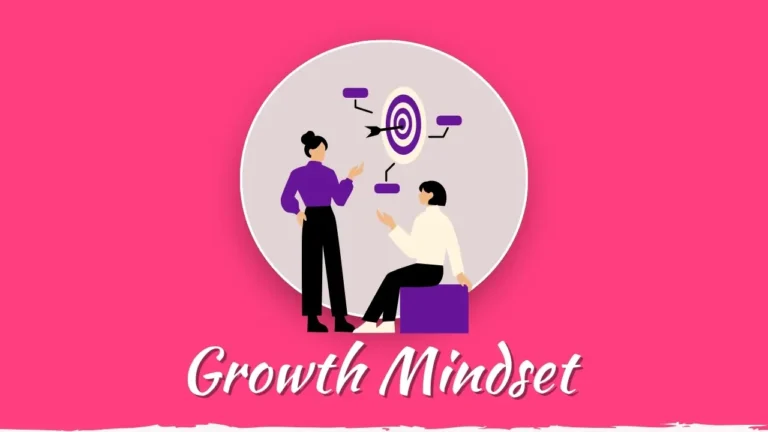Strategies for Developing Marketable Skills in Your Field

In a rapidly evolving professional landscape, the acquisition of marketable skills is a strategic imperative for individuals seeking to thrive in their chosen fields. Marketable skills not only enhance employability but also contribute to professional growth and adaptability. In this comprehensive guide, we explore effective strategies for developing and honing marketable skills and empowering individuals to navigate the competitive terrain of their respective industries.
Understanding Marketable Skills
Definition and Significance
Marketable skills are those abilities and attributes that are in demand within a specific industry or occupation. Possessing marketable skills not only increases an individual’s value in the job market but also positions them as valuable contributors to their organization.
Dynamic Nature of Marketable Skills
The dynamic nature of the job market necessitates a continuous evolution of marketable skills. What may be in demand today might not hold the same relevance tomorrow. Staying ahead requires a proactive approach to skill development.
Strategies for Identifying In-Demand Skills
Industry Research
Conduct thorough research on current industry trends and demands. Stay informed about emerging technologies, methodologies, and skill sets relevant to your field. Online resources, industry publications, and networking events are valuable sources of information.
Job Postings and Descriptions
Analyze job postings and descriptions for positions within your field. Identify common skill requirements and sought-after qualifications. This analysis provides insights into the skills employers value and prioritize.
Networking with Professionals
Engage in networking activities to connect with professionals in your industry. Attend conferences, webinars, and industry events to gain firsthand knowledge of the skills that are highly regarded. Conversations with seasoned professionals can provide valuable insights.
Tailoring Marketable Skills to Your Career Goals
Assessing Personal Goals
Align your skill development with your long-term career goals. Identify the skills that are directly relevant to your aspirations. This targeted approach ensures that your efforts contribute meaningfully to your professional advancement.
Building a Skill Roadmap
Create a skill roadmap that outlines the specific skills you need to acquire over time. Prioritize these skills based on their importance to your career goals. A structured roadmap serves as a guide for focused and intentional skill development.
Seeking Mentorship
Establish mentorship relationships with individuals who have achieved success in your desired career path. Mentors can provide guidance on the skills that are most valuable, offer personalized advice, and share their experiences in navigating the industry landscape.
Leveraging Educational Opportunities
Formal Education
Explore formal educational opportunities such as degree programs, certifications, and workshops. Formal education not only provides structured learning but also often leads to recognized credentials that enhance your credibility in the job market.
Online Learning Platforms
Take advantage of online learning platforms that offer a wide array of courses and programs. Platforms like Coursera, edX, and LinkedIn Learning provide flexibility and accessibility, allowing you to acquire new skills at your own pace.
Industry-Specific Training
Seek out training programs and workshops that are tailored to your industry. These specialized programs often provide hands-on experience and practical knowledge, making them highly relevant to the skills demanded in your field.
Developing Soft Skills for Professional Success
Communication Skills
Effective communication is a universally valued skill. Enhance your written and verbal communication skills to convey ideas clearly and professionally. Practice active listening to understand and respond thoughtfully.
Emotional Intelligence
Develop emotional intelligence to navigate professional relationships with empathy and self-awareness. Understanding and managing emotions, both yours and others, contributes to effective teamwork and leadership.
Adaptability and Resilience
In a fast-paced work environment, adaptability and resilience are indispensable. Cultivate the ability to embrace change, learn from setbacks, and bounce back from challenges. These qualities make you an asset in dynamic workplaces.
Gaining Practical Experience
Internships and Apprenticeships
Participate in internships and apprenticeships to gain practical experience in your field. Hands-on exposure not only reinforces theoretical knowledge but also allows you to apply and refine your skills in real-world scenarios.
Volunteer Opportunities
Explore volunteer opportunities related to your industry. Volunteering not only contributes to your community but also provides a platform to develop and showcase your skills. Many organizations appreciate skilled volunteers who can make meaningful contributions.
Freelance and Side Projects
Engage in freelance work or side projects to apply and showcase your skills. Building a portfolio of tangible projects not only demonstrates your capabilities but also offers a tangible representation of your skill set to potential employers or clients.
Showcasing Skills through Portfolios
Building a Professional Portfolio
Create a professional portfolio that highlights your skills, projects, and achievements. Include tangible examples of your work, such as project outcomes, reports, or presentations. A well-curated portfolio serves as a visual representation of your expertise.
Online Platforms and Personal Websites
Utilize online platforms and personal websites to showcase your portfolio. Platforms like Behance, GitHub, or a personal website provide a centralized location for potential employers or collaborators to review your work.
Demonstrating Results
When showcasing skills, focus on demonstrating the results of your efforts. Highlight the impact your skills have had on projects, teams, or organizations. Quantifiable results provide concrete evidence of your proficiency.
Networking for Skill Development and Opportunities
Joining Professional Networks
Become a member of professional networks related to your industry. Participate in forums, discussions, and events to connect with like-minded professionals. Networking provides opportunities for skill exchange and learning.
Attending Industry Events
Attend industry-specific events, conferences, and meet-ups. These gatherings not only offer valuable insights into industry trends but also provide opportunities to network with professionals who can share their experiences and expertise.
Engaging in Mentor-Mentee Relationships
Establish mentor-mentee relationships within your professional network. A mentor can guide you in skill development, offer advice based on their experiences, and provide valuable insights into the industry landscape.
Continuous Learning and Skill Maintenance
Embracing a Growth Mindset
Cultivate a growth mindset that encourages continuous learning. Approach challenges with a positive attitude, view failures as opportunities for improvement and stay curious about acquiring new knowledge and skills.
Keeping Abreast of Industry Trends
Stay informed about industry trends and advancements. Subscribe to industry publications, follow thought leaders on social media, and join relevant online forums. Being aware of trends ensures your skills remain relevant.
Periodic Skill Assessments
Periodically assess your skill set to identify areas for improvement. Conduct self-assessments or seek feedback from peers, mentors, or supervisors. Identifying gaps allows you to proactively address skill deficiencies.
Conclusion: Navigating the Evolving Landscape
In a professional landscape characterized by constant change, the ability to develop and maintain marketable skills is a vital aspect of career success. By implementing targeted strategies, individuals can not only identify and acquire in-demand skills but also position themselves as adaptable and valuable contributors to their industries. Embrace a proactive approach to skill development, stay attuned to industry needs, and continually refine your expertise to navigate the evolving landscape of your chosen field.



